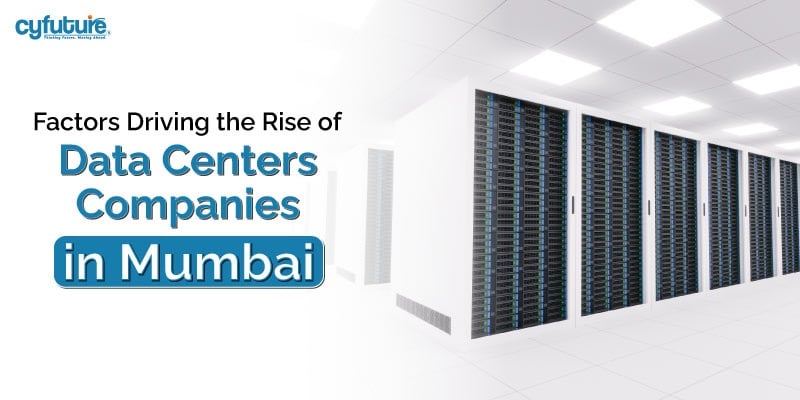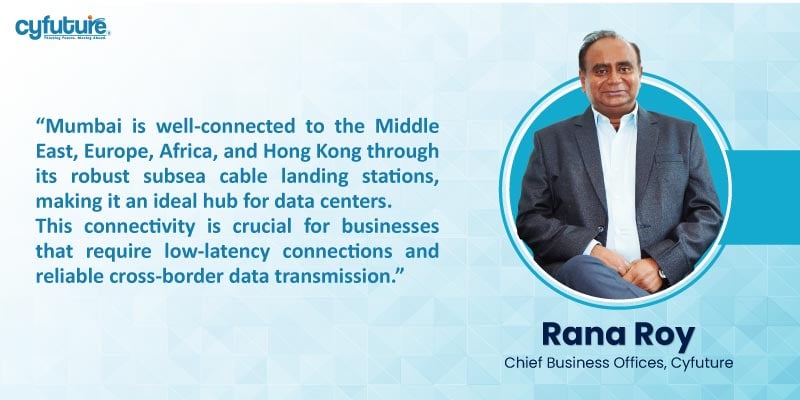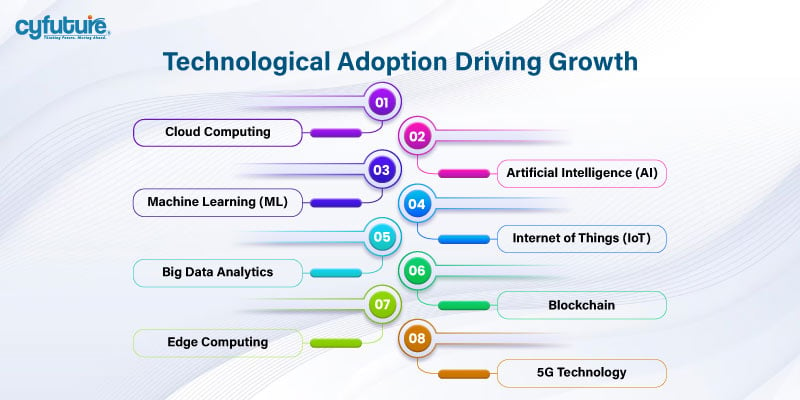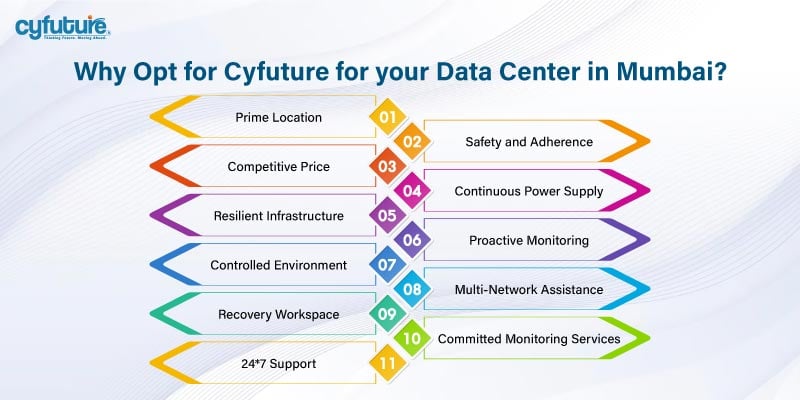-
Get Cloud GPU Server - Register Now!
Toggle navigation

For centuries, Mumbai, a bustling business and transport hub on India’s western coast, has been a magnet for people and businesses, enticing them to set up their operations here. Historically, this city was a vibrant marketplace where traders and merchants exchanged textiles, spices, metalware, and various handicrafts.
Today, Mumbai stands as India’s financial capital, hosting thriving business districts, Special Economic Zones (SEZ), and a central hub for trade and transport. It serves as the nerve center for manufacturing, retail, entertainment, banking, finance, and many other sectors. These industries are swiftly advancing in their digital journeys, embracing emerging technologies such as Artificial Intelligence (AI), Machine Learning (ML), and the Internet of Things (IoT) to streamline operations and enhance customer service. As a result, they generate and process vast amounts of data.
This surge in data production has significantly boosted the cloud and data center industry in India, with Mumbai emerging as the preferred location for data centers. According to industry reports, the data center market in Mumbai has seen exponential growth, with a compound annual growth rate (CAGR) of 25% over the past five years. The city’s strategic location, robust infrastructure, and access to a skilled workforce make it an ideal hub for data center operations.
|
DID YOU KNOW?
Mumbai is home to one of the most extensive subsea cable networks in the world, which connects India to several global internet hubs, making it a critical point for international data traffic and a prime location for data centers! |
Currently, Mumbai hosts nearly half of all data centers in India, including those of top national and international players. Earlier this year, it was reported that Mumbai had emerged as the third-largest data center market in the Asia Pacific region. According to a report by Knight Frank, Mumbai boasts a capacity of 2,337 MW, ranking just behind Shanghai (2,692 MW) and Tokyo (2,575 MW).
While the expansion of data centers is set to span across all major cities in India, Mumbai remains at the forefront due to its status as a major commercial and financial hub. The city accounts for more than 50 percent of the country’s current and planned data center capacities. Mumbai’s strategic significance is underscored by its exceptional connectivity, serving as a crucial link between major Indian cities and global destinations. The city offers reliable power, extensive road networks, robust fiber infrastructure, and key connectivity options, including cable landing stations—all vital for the functioning of data centers.
Mumbai is an integral part of India’s rapidly advancing digital ecosystem, making it a prime location for data centers in line with the nation’s expansion plans and vision for a sustainable digital future. The city’s infrastructure supports the growing demand for cloud and data services, with Mumbai’s data center market demonstrating a compound annual growth rate (CAGR) of 25% over the past five years.

The strategic placement of data centers in Mumbai, coupled with its infrastructural advantages and connectivity, ensures the city remains a pivotal player in India’s digital landscape, supporting the nation’s ambitions for a technologically advanced and interconnected future.
Research conducted by various national and international organizations highlights Mumbai’s favorable position in the data center market. The city continues to draw significant data center investments, benefiting from reliable power supply, strategic cable landing stations, high demand from the BFSI sector, its status as a telecom hub, and minimal natural disaster risks.
According to a recent report, the Mumbai data center market, which was valued at 411.9 MW in 2022, is projected to grow at a Compound Annual Growth Rate (CAGR) of 13.44% from 2018 to 2029, reaching a capacity of 1,491.38 MW by 2029. This growth is driven by the increasing adoption of cloud and digital services across various industries, which in turn expands the B2B cloud computing service market. The report further notes that investments in big data and IoT technology are expected to boost the managed data center and colocation service market significantly.
A recent report by CRISIL Ratings supports these findings, emphasizing Mumbai’s appeal due to the presence of sub-sea cable landing stations, proximity to large enterprises that reduce latency, and the continuous availability of electricity. CRISIL Ratings also projects that India will attract investments worth Rs 45,000 crores over the next three fiscal years through 2026, driven by the burgeoning data center market.
Mumbai’s strategic advantages and robust infrastructure make it a prime location for data center investments, ensuring its continued dominance in India’s digital landscape. The city’s capacity to support extensive digital infrastructure is crucial as businesses increasingly rely on low-latency connections and reliable data transmission, further solidifying Mumbai’s role as a central hub in the global data center industry.

Mumbai’s emergence as a key data center hub is driven by its strategic location, robust infrastructure, supportive regulatory environment, and burgeoning digital economy. Technological advancements and increasing business demand further accelerate this growth, positioning Mumbai as a vital node in India’s digital infrastructure landscape.
Mumbai’s rise as a data center hub is significantly influenced by its strategic location. Known as the financial and commercial capital of India, Mumbai serves as the gateway to the Indian subcontinent, making it an ideal location for businesses looking to establish data centers. The city’s excellent connectivity through multiple submarine cables ensures robust internet infrastructure and low latency connections, essential for data-intensive operations. This strategic advantage positions Mumbai as a pivotal node in global data exchange networks.
The robust infrastructure in Mumbai supports the proliferation of data centers. The city boasts a reliable power supply, which is critical for the continuous operation of data centers. Additionally, the availability of commercial real estate tailored for large-scale data center projects facilitates the establishment and expansion of these facilities. The city’s infrastructure development initiatives have created a conducive environment for data center growth.
Several economic factors are driving the demand for data centers in Mumbai. The rapid expansion of India’s digital economy, including sectors such as e-commerce, online streaming, and cloud services, has significantly increased the need for local data storage and processing capabilities. This demand is further bolstered by substantial foreign and domestic investments in data center infrastructure, fueling the industry’s growth.
Supportive government policies play a crucial role in the rise of data centers in Mumbai. Initiatives like the Digital India campaign and various tax incentives encourage businesses to invest in data center infrastructure. Moreover, emerging data localization laws, which mandate that companies store certain types of data within the country, are compelling businesses to establish local data centers, further driving the sector’s growth.
Technological advancements are another critical factor contributing to the growth of data centers in Mumbai. The increasing adoption of cloud computing necessitates local cloud infrastructure to meet the growing demand for scalable and efficient data storage solutions. Additionally, the rise of edge computing, which requires data centers to be closer to end-users for faster data processing and reduced latency, is driving the establishment of more localized data centers in the city.
The diverse business ecosystem in Mumbai significantly drives the demand for data centers. Large enterprises, particularly in the financial sector, rely on data centers for secure and efficient data storage and processing. Furthermore, the thriving startup ecosystem in the city demands scalable and reliable data storage solutions, contributing to the increasing need for data center facilities.
Businesses in Mumbai are increasingly focusing on disaster recovery and business continuity, which necessitate the use of data centers for backup and recovery solutions. The resilience provided by data centers ensures that businesses can maintain operations and safeguard critical data in the event of disruptions, making them a vital component of modern business infrastructure.
The growth of data centers is not confined to Mumbai alone; it is starting to spill over into surrounding regions. Neighboring areas such as Navi Mumbai and Thane are witnessing a surge in data center investments due to the saturation of available space and rising costs within Mumbai. These regions offer attractive alternatives with ample land availability, relatively lower costs, and sufficient infrastructure to support large-scale data center operations.
Navi Mumbai, in particular, is emerging as a significant player in the data center market. The area boasts robust connectivity, including major highways and proximity to Mumbai’s international airport, making it an ideal location for data center expansion. The presence of special economic zones (SEZs) and planned infrastructure projects like the Navi Mumbai International Airport further enhance its attractiveness to investors.
Thane is also gaining traction as a potential data center hub. With its strategic location and improving infrastructure, it offers a viable option for businesses looking to establish or expand their data center facilities. Thane’s connectivity to Mumbai and other key cities, along with its growing industrial and commercial base, make it a promising destination for data center investments.
The spillover of growth outside Mumbai is indicative of the broader trend of digital infrastructure expansion across the Mumbai Metropolitan Region (MMR). As businesses increasingly adopt cloud computing, AI, and IoT technologies, the demand for data center capacity is set to rise, driving further investments in these neighboring regions.
This regional expansion not only alleviates the pressure on Mumbai’s infrastructure but also contributes to the overall development of the MMR. It ensures that the benefits of the digital economy are distributed more evenly, fostering economic growth and creating job opportunities in the surrounding areas.

The rapid expansion of the data center industry in Mumbai and its surrounding regions reflects India’s broader digital transformation and economic growth. Mumbai, with its strategic location, robust infrastructure, and connectivity, continues to be a magnet for data center investments. The city’s established reputation as a financial and commercial hub, coupled with reliable power supply and minimal natural disaster risks, makes it an ideal location for such facilities.
However, as Mumbai reaches its capacity limits, neighboring regions like Navi Mumbai and Thane are emerging as significant players in the data center market. These areas offer viable alternatives with ample space, lower costs, and sufficient infrastructure, positioning them to benefit from the spillover of growth from Mumbai. This regional expansion not only alleviates the strain on Mumbai’s infrastructure but also promotes balanced economic development across the Mumbai Metropolitan Region (MMR).
The adoption of cutting-edge technologies such as cloud computing, AI, and IoT by various industries is a key driver of this growth. As businesses generate and process ever-increasing volumes of data, the demand for data center capacity will continue to rise. This trend underscores the importance of strategic investments in digital infrastructure to support India’s ongoing digital revolution.